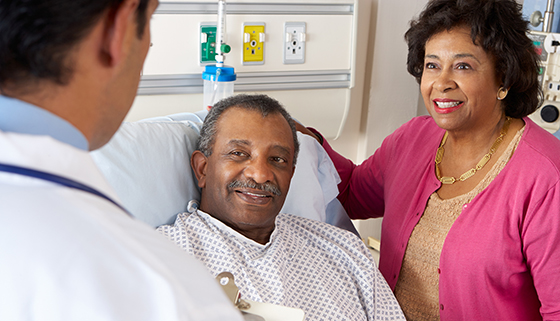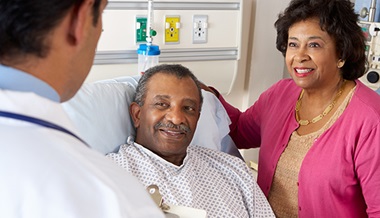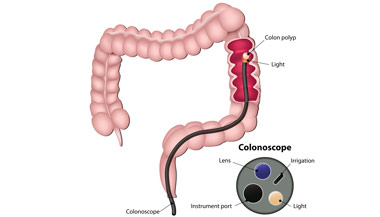Colon Cancer Surgery: What to Expect
If you’ve been diagnosed with colorectal cancer, your doctor may recommend surgery, which often offers the best chance for treatment. The earlier doctors find and treat colon cancer, the greater the likelihood of a positive outcome. Here’s what Johns Hopkins' colorectal surgeons want everyone to know about surgery options for colon cancer.

Approaches for Colon Cancer Surgery
Your doctor will determine the best treatment plan for you based on multiple factors, including:
- The location of the lesions, or cancer, in your colon
- Whether (and how far) the cancer has spread
Doctors often remove one-third of the colon during surgery to ensure that they remove all of the cancer. They will also take a sample from the lymph nodes and test it to determine whether the cancer has spread. Today, doctors use two approaches for colon cancer surgery:
- Open surgery: This is the conventional approach, using an abdominal incision, and may require a longer hospital stay.
- Minimally invasive surgery: Performed using laparoscopic or robotic tools, this surgery requires a smaller incision and allows for a quicker recovery.
Colon Cancer: Colostomy Basics
At Johns Hopkins, medical teams work hard to shrink lesions, if necessary, so they can reconnect the colon during surgery. In fact, in most cases, our team is able to reconnect the colon after removing the cancerous section.
Reconnecting the colon allows your digestive system to function normally. Because the colon will be shorter than before, you can expect to have one or two more bowel movements per day compared to before surgery.
In rare cases where reconnection is not possible, a colostomy may be necessary. In a colostomy procedure, doctors will:
- Make an artificial opening (stoma) in the abdominal wall
- Connect the healthy part of the colon to the opening
- Attach a colostomy bag to the opening, which provides a new way for your body to get rid of waste
Thousands of people live active, fulfilling lives after colostomy surgery. Ask your doctor about resources that are available if you’re concerned about a colostomy.
Colon Cancer: What to Expect After Surgery
You should expect to be in the hospital for four to five days after surgery. At Johns Hopkins, our enhanced recovery after surgery (ERAS) program helps patients have a successful recovery.
Through this program, our medical teams help patients prepare for surgery and get moving soon after their surgery. This can help patients:
- Go home faster
- Experience less pain
- Recover more quickly
Meet Our Colorectal Cancer Experts

Our team is dedicated to developing multidisciplinary treatment plans for complicated, advanced colon and rectal cancers.
Find a Johns Hopkins colorectal cancer expert in Baltimore and Washington, D.C.





